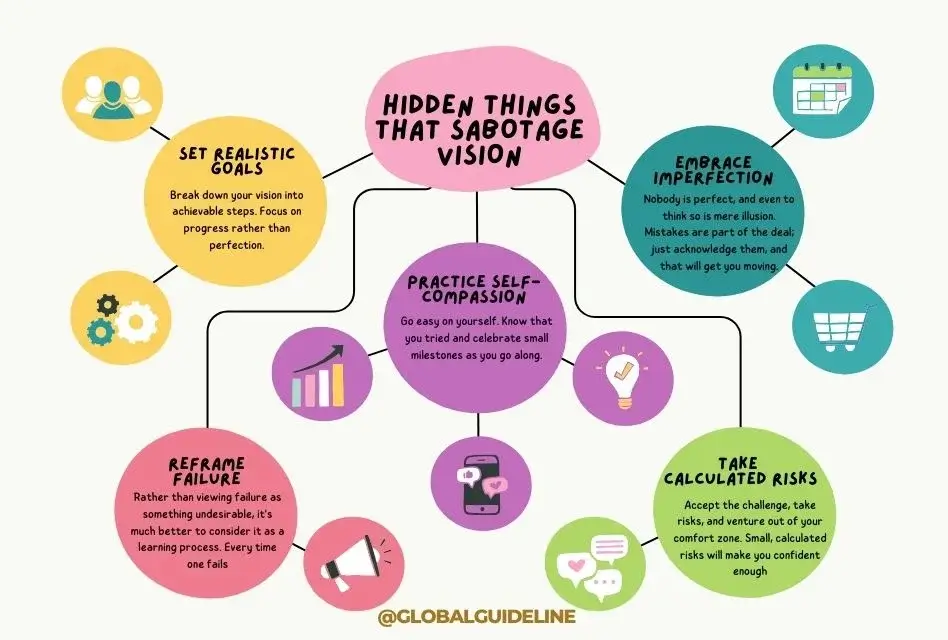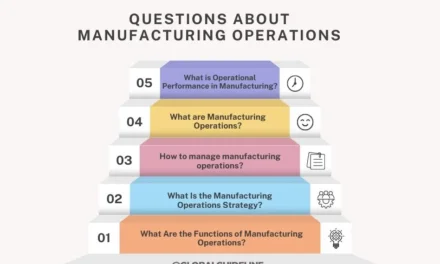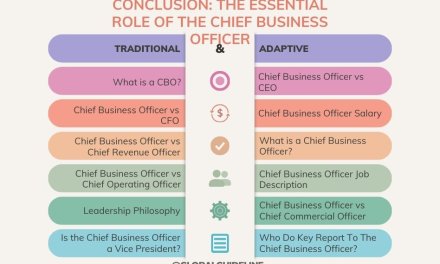Success, innovation, and personal growth all depend upon one’s vision. Be it in career, relationship, or personal life, it is important that one should have a clear vision to accomplish goals. However, there are certain hidden saboteurs that destroy this vision and hinder one from realizing full potential. What sabotages vision, with some practical strategies to overcome them, is what we look at in this article. Understanding these obstacles is the first step towards reclaiming your vision and moving forward with confidence.
Table of Contents
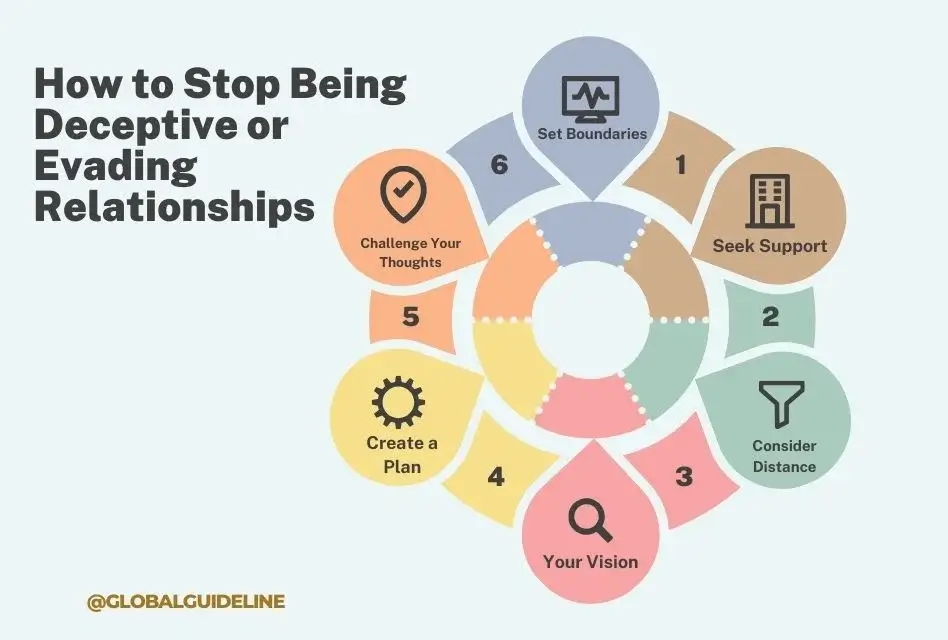
1. Perfectionism: The Silent Saboteur
One of the most ordinary things that sabotage vision is perfectionism. Whereas striving for excellence is admirable, an obsession with perfection surely paralyzes you. Perfectionism often leads to procrastination because one is afraid to take an action for fear that the outcome might not be “perfect”.
What constitutes self-sabotaging perfectionism?
Perfectionism is setting unrealistically high standards for yourself that anxiously cause stress and, at times, a constant fear of failure. This can derail your vision easily in that it makes you focus on the minor details rather than the big picture.
How to Overcome Perfectionism
- Set Realistic Goals: Break down your vision into achievable steps. Focus on progress rather than perfection.
- Embrace Imperfection: Nobody is perfect, and even to think so is mere illusion. Mistakes are part of the deal; just acknowledge them, and that will get you moving.
- Practice Self-Compassion: Go easy on yourself. Know that you tried and celebrate small milestones as you go along.
2. Fear of Failure: The Vision Blocker
The other massive destroyer is fear of failure. Sometimes this shows up as indecision, hesitation, or not challenging yourself. For instance, in case you have fear of failing, then it will further lead you to stay inside your comfort zone and squash any growth and progress.
What Is Sabotage in Psychology?
Sabotage in psychology means an action or conduct whereby a person intentionally or subconsciously undermines his or her success or that of others. This might be self-sabotaging or even the sabotage of others. One of the most common psychological sabotage that could stand in your way to reach your vision is fear of failure.
How to Overcome Fear of Failure
- Reframe Failure: Rather than viewing failure as something undesirable, it’s much better to consider it as a learning process. Every time one fails, something new is learnt that may help reach success quicker.
- Take Calculated Risks: Accept the challenge, take risks, and venture out of your comfort zone. Small, calculated risks will make you confident enough to overcome the fear of failure.
- Focus on Growth: Instead of harboring the fear of failing, develop an attitude of excitement about learning and growing. After all, progress often comes with taking risks.
3. Negative Self-Talk: The Inner Saboteur
Negative self-talk is one of the biggest saboteurs to vision. The way you refer to yourself has either propelled you forward or held you back. If you are always telling yourself that you’re not good enough, smart enough, or capable enough, it is for sure that you will undermine your efforts and diminish your chances of success.
Am I a Self-Saboteur?
And if you hear the voice of your negative self-talk or doubt your own capabilities, then probably you are one of them: the self-saboteur. This behavior will prevent you from pursuing your vision with confidence and determination.
How to Overcome Negative Self-Talk
- Challenge Your Thoughts: When negative thoughts arise, question the validity. Are they based on facts or assumptions? Replace negative thoughts with positive affirmations. Identify what are your thoughts.
- Surround yourself with positivity: it may be in the company of loved ones or people who like to uplift and motivate you. It helps balance your inner critic because their positivity works its magic in counterbalancing the mindset within.
- Practice mindfulness: Through it, with techniques such as meditation, one will be able to develop a better awareness of one’s thoughts and feelings so that one can nip negative self-talk in the bud before it starts taking hold.
4. Lack of Clarity: The Clouded Vision
Perhaps one of the subtler yet most powerful things that sabotage vision is a lack of clarity. If your vision is not well defined, then it is difficult to take definite action. Without clear directions, you might just be drifting without any idea in what direction you’re taking.
How do you know whether someone is self-sabotaging?
Lack of clarity and direction are common causes of self-sabotaging behaviors. A person is said to be self-sabotaging due to lack of clarity if he constantly changes goals, procrastinates, or appears not to be clear about his direction.
Overcoming Lack of Clarity
- Define Your Vision: Take time to articulate a vision of what you want to accomplish. Why is that important? It will be easier to stay focused the clearer your vision is.
- Create a Plan: Break down your vision into concrete, actionable steps. A plan provides direction and meaning.
- Regularly Reassess Your Vision: Go back to your vision from time to time in light of what is going on to make sure it still points toward your goals and values. Re-correct the direction of your plan, as needed.
5. Toxic Relationships: The External Saboteurs
Toxic relationships can be major external factors to destroy vision. Whether from a toxic work environment, unsupportive friends, or a personal toxic relationship, the toxic components in life can drain your energy, suppress your self-esteem, and ruin your focus on your goals.
Things That Sabotage Vision in a Relationship
Sabotage in relationships could be in the form of criticism, manipulation, or the absence of support. And with such behaviors, eventually self-confidence will be chipped away and warped, making one unable to stay committed to their vision.
How to Stop Being Deceptive or Evading Relationships
If you find yourself always being sneaky or avoiding relationships, then it is about time for an act of change. Being open and setting boundaries around other people can definitely help you build healthy relationships that allow you to stay committed to your vision.
Overcoming Toxic Relationships
- Set Boundaries: Set boundaries to protect your time, energy, and sanity, and communicate the same to people around you.
- Seek Support: Surround yourself with people who genuinely support and believe in your vision. Positive relationships can uplift and inspire you.
- Consider Distance: If some relationships are continually toxic and hurtful, consider distancing yourself from such people. Your mental and emotional health matters.
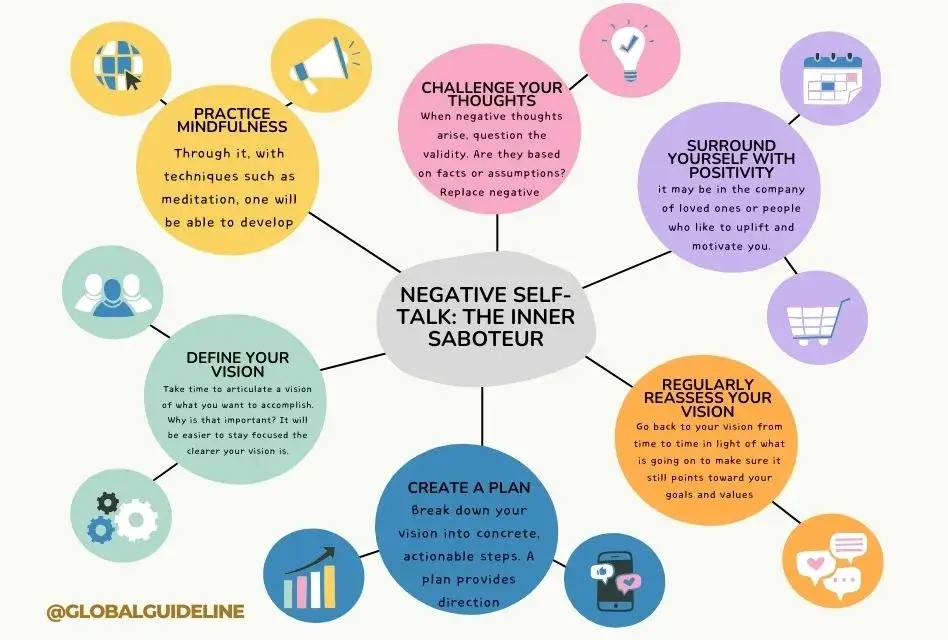
Job Interview Questions About Vision and Self-Sabotage
How you understand the role of vision and self-sabotage can be critical in job interviews. Here are some common questions and how to answer them:
- Describe a time when you overcame a personal struggle that interfered with fulfilling your vision?
“In the past, I dealt with perfectionism; thus, procrastination. I learned to put in realistic goals and embraced imperfection so I could actually finish projects more efficiently and realize the vision.” - How do you keep your eyes on the vision when obstacles get in the way?
“I keep my vision in focus, return to it time and again, and make sure I can break it down into smaller, achievable steps. It keeps me nimble facing one obstacle at a time while maintaining the overview of a much larger whole.” - What do you do so you won’t sabotage yourself?
“I don’t allow any negative self-conversations; if any doubt does creep in, I confront them. Second, ask for feedback from people whom you can trust. And third, clearly defined goals and a positive work environment will also do the trick.”
These questions are an avenue to showcase awareness of self-sabotage and your commitment to keeping your vision crystal clear in professional life.
FAQ Section
What Are Acts of Sabotage?
Acts of sabotage are intentional activities or behaviors committed to damage or destroy something, be it a project, a relationship, or someone’s success. These acts can be overt or subtle.
What Is Sabotage in Psychology?
Sabotage in psychology refers to behavior or an action carried out that fails one’s own achievement or others by deliberate or unconscious actions. It is the self-sabotaging behavior of individuals wherein they do things that prevent them from realizing their vision or goals.
Does Sabotage Mean Destroy?
Though sabotage primarily means causing destruction, it doesn’t really imply destruction thoroughly. In certain terms, sabotage can be referred to an act that hinders progress offers an obstacle, or weakens an effort.
What Can Be Sabotage?
Sabotage can occur in a huge range: workplace, relationships, or even personal goals; it can be physical, tampering with equipment, or even psychological, with the spread of rumors or undermining someone’s confidence.
Is Sabotage a Threat?
Yes, sabotage may be a threat if it delays progress, ruins relationships, or undermines trust. In a professional context, sabotage is serious in its ramifications for individuals and organizations alike.
What Is the Most Famous Sabotage?
One of the most famous acts of sabotage that occurred was the sinking of the USS Maine in 1898. This incident had a major role in the beginning of the Spanish-American War. In the broader sense, however, many historic happenings have involved acts of sabotage that have had big impacts.
What Are the Simple Acts of Sabotage?
Simple acts of sabotage may include spreading of negative rumors, willful missing of deadlines, or withholding critical information. It might appear small and undestructive; however, it will build up and eventually destroy any progress.
What Is Illegal Sabotage?
Illegal sabotage is the willful act of destruction or disruption that is against the law. Examples include tampering with safety equipment, property damage, and cyber sabotage.
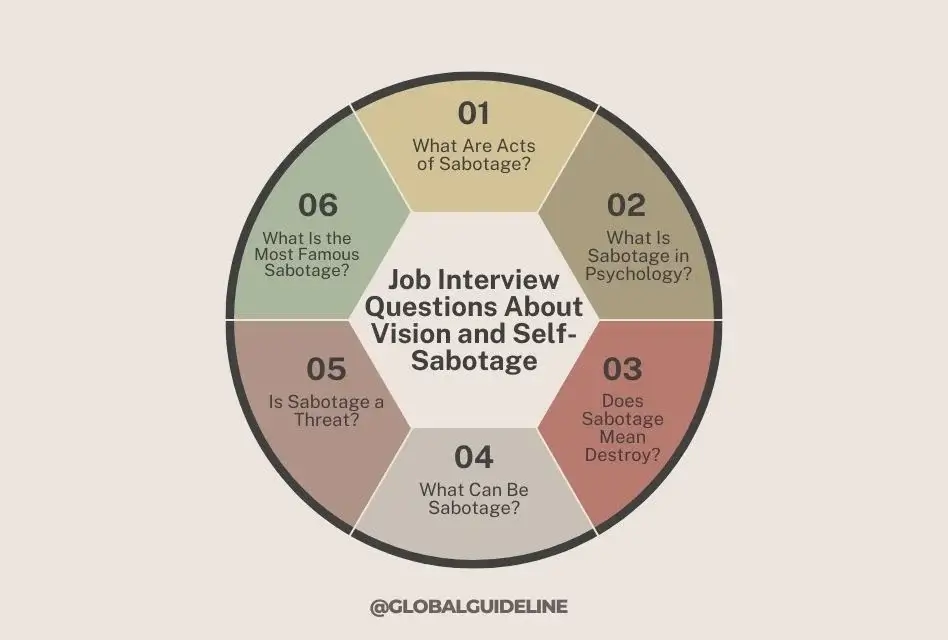
Conclusion
Let me say, vision is a powerful tool that inspires us toward our goals and aspirations. But one must be sensitive as well to those things in hiding that sabotage vision-so you may make personal, deliberate moves to overcome them. Whether it’s perfectionism, fear of failure, negative self-talk, lack of clarity, or toxic relationships, if these go unnoticed, they’ll surely get in the way of progress. By identifying these saboteurs and enacting the strategies outlined in this article, you can defend your vision and continue to move forward with confidence. As noted,

